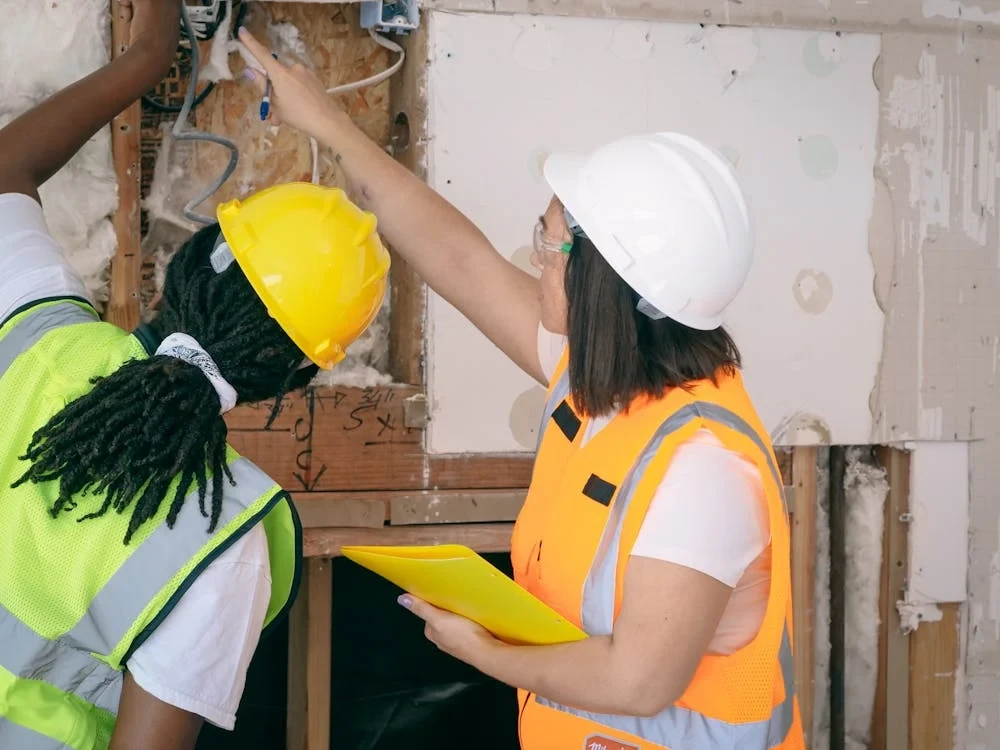The importance of an asbestos inspection cannot be overstated when it comes to maintaining a safe and compliant commercial environment. Asbestos was previously used extensively in construction before its health implications were understood. It is now recognised as a significant health hazard. For commercial property owners and managers, understanding the importance of regular asbestos inspections is critical to ensuring the safety of workers and remaining compliant with legal obligations.
The Necessity of Asbestos Inspections in Commercial Settings
Commercial buildings, especially those constructed before the 1990s, often contain asbestos-containing materials (ACMs). These materials can be found in various building parts, including insulation, roofing, flooring, and electrical boxes. Over time, these materials age or become damaged, releasing asbestos fibres into the air, and posing a severe health risk to anyone nearby.
Conducting an asbestos inspection, combined with laboratory testing, is the only reliable way to identify the presence of ACMs in a building. These inspections are not just recommended—they are legally required in old buildings with suspected ACMs. In many countries, including Australia, strict regulations mandate asbestos inspections for commercial properties, particularly before renovations or demolitions. Failure to comply can lead to significant penalties and, more importantly, put lives at risk.
Legal Requirements for Worker Safety
The primary goal of an asbestos inspection is to protect workers’ health and safety. Asbestos exposure is linked to severe health issues, including asbestosis, lung cancer, and mesothelioma. To minimise the risk of exposure, the law requires employers, property managers and property owners to conduct regular asbestos inspections and manage any detected ACMs according to strict guidelines.
Australian regulations, such as those outlined in the Work Health and Safety (WHS) laws, mandate that a qualified professional must inspect commercial properties. These inspections are crucial in identifying ACMs and assessing their condition. If ACMs are found, an asbestos register and management plan must be developed and implemented to minimise the risk of exposure.
The Asbestos Register: Essential Documentation
One critical outcome of an asbestos inspection is the creation of an asbestos register. This document comprehensively records all identified ACMs within a commercial property. The register must include details about the location, condition, and type of asbestos found and recommendations for managing or removing the material.
The asbestos register is an essential tool for maintaining a safe work environment. It must be updated and readily available for inspection by workers, contractors, and health and safety representatives. Whenever an asbestos inspection is conducted, the findings must be added to the register, ensuring everyone involved in the property’s maintenance knows about potential asbestos hazards.
Why Skipping an Asbestos Inspection is Not an Option
Ignoring the need for an asbestos inspection in a commercial setting is illegal and highly irresponsible. ACMs can go undetected without a proper inspection, putting everyone in the building at risk of exposure. Moreover, failing to maintain an accurate asbestos register once ACMs have been identified can result in hefty fines and legal action.
Regular asbestos inspections are a crucial part of building maintenance in commercial properties. They ensure that ACMs are identified and managed appropriately, safeguarding the health of workers and complying with legal requirements. Property owners and managers can prevent asbestos-related health risks and avoid legal complications by arranging thorough inspections by a licenced asbestos inspector and maintaining an up-to-date asbestos register. Asbestos inspections are a legal requirement, a moral obligation, and a vital step in ensuring the safety of everyone who enters the building.
Don’t take chances with asbestos. Schedule your asbestos inspection today to protect your workers and your business.

